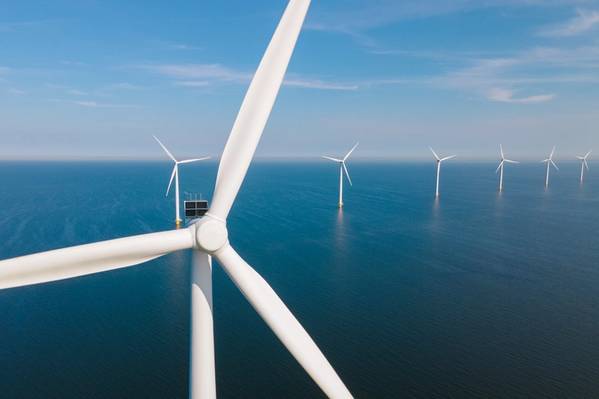
Despite the negative headlines around the longer-term prospects for the U.S. offshore wind segment, business intelligence company Intelatus Global Partners sees continued efforts by the federal government and, in particular, the East Coast states to find solutions to the challenges faced by the industry as whole, which can be grouped under three headings: high inflation, supply chain development and high interest rates.
On the side of the federal government, offshore wind leasing and permitting is being prioritized over oil and gas development. If one was being cynical, one could suggest that there is a focus to maximize the amount of leased and permitted projects before the next national elections, due at the end of 2024.
Federal agencies are moving forward to prepare the groundwork for the auction of three shallow water Central Atlantic sites able to support 4.3-8.2 gigawatts (GW) of capacity and two deeper water sites off Oregon for auction in 2024. The Interior Department’s Bureau of Ocean Energy Management (BOEM) has approved two project construction and operations plans (COP) for 1.9 GW and is reviewing 10 COPs which cover close to 18 GW of Atlantic offshore wind capacity, for which the majority is expected to be permitted within 2023 and 2024.
The current federal permitting process encompasses over 1,400 turbines and 21 GW of project capacity, three quarters of which is expected to be permitted before the end of 2024 and 12 GW of which has secured state offtakes.
At state level, Intelatus sees efforts to find solutions to the fact that developers who are contracted to supply renewable electricity to those states by certain dates cannot finance their projects. The cancellation of contracts by Commonwealth Wind, Park City Wind and SouthCoast Wind and the fact that these projects will be bid into ongoing procurement processes by Connecticut, Massachusetts and Rhode Island is a signal that pragmatism is the order of the day.
Connecticut, Massachusetts and Rhode Island have taken the additional step of discussing how best to coordinate their procurement activities. The three states are working with six other states and the federal government to better coordination supply chain localization initiatives.
New York and New Jersey are currently seeking to procure 3.2-8.6 GW of offshore wind capacity, Rhode Island 1.2 GW and Massachusetts 3.6 GW from developers in the Northeast and Mid-Atlantic. Connecticut is expected to issue a solicitation shortly to procure up to 1.2 GW of offshore wind.
And while this is going on, the construction of South Fork and Vineyard 1 progresses. Further, Dominion has commenced the shipment of monopiles for its 2.6 GW CVOW-C project and Ørsted will start export cable landing works for the Revolution project in October.
Intelatus maintains its forecast for over 70 projects that will install close to 87 GW of capacity in this and the next decade and a total 110 GW by 2050.
| U.S. Offshore Wind Opportunity by FID Timing | ||||
|---|---|---|---|---|
| Projects | GW | Turbines | CAPEX ($ bn) | |
| FID Taken | 2 | 0.94 | 74 | 4.6 |
| COP Approved | 1 | 1.15 | 96 | 6.3 |
| 0-18 Months | 14 | 12.62 | 827 | 52.7 |
| 18-36 Months | 12 | 9.12 | 594 | 33.9 |
| 36-60 Months | 7 | 9.28 | 628 | 31.3 |
| 60 Months | 35 | 53.83 | 3,347 | 141.7 |
| Total | 71 | 86.95 | 5,566 | 270.6 |
The 87 GW forecast capacity will require capital expenditure amounting to around $270 billion to bring onstream, a recurring annual operations and maintenance spend of $8.6 billion once delivered, and close to $38 billion of decommissioning expenditure at the end of commercial operations.